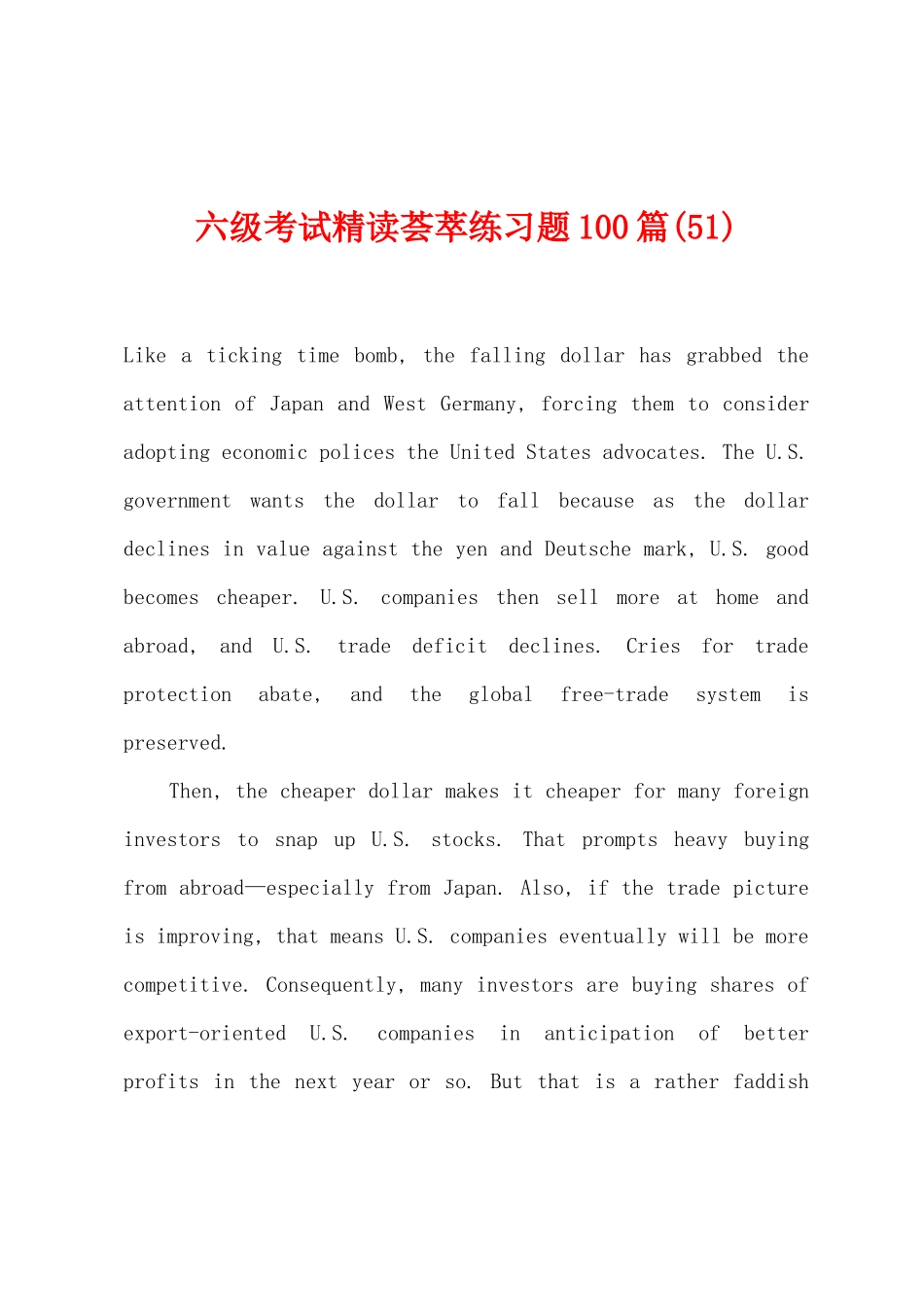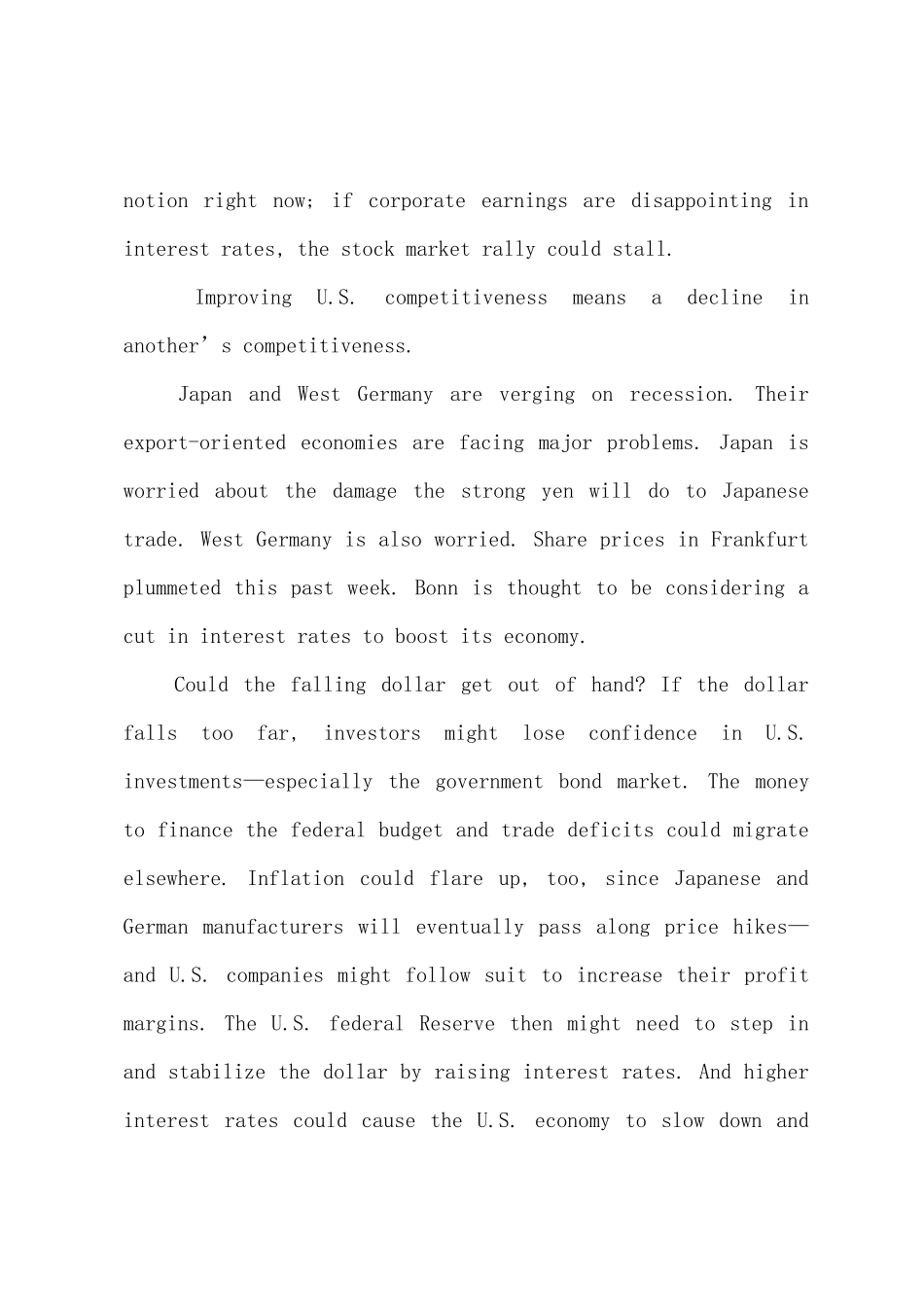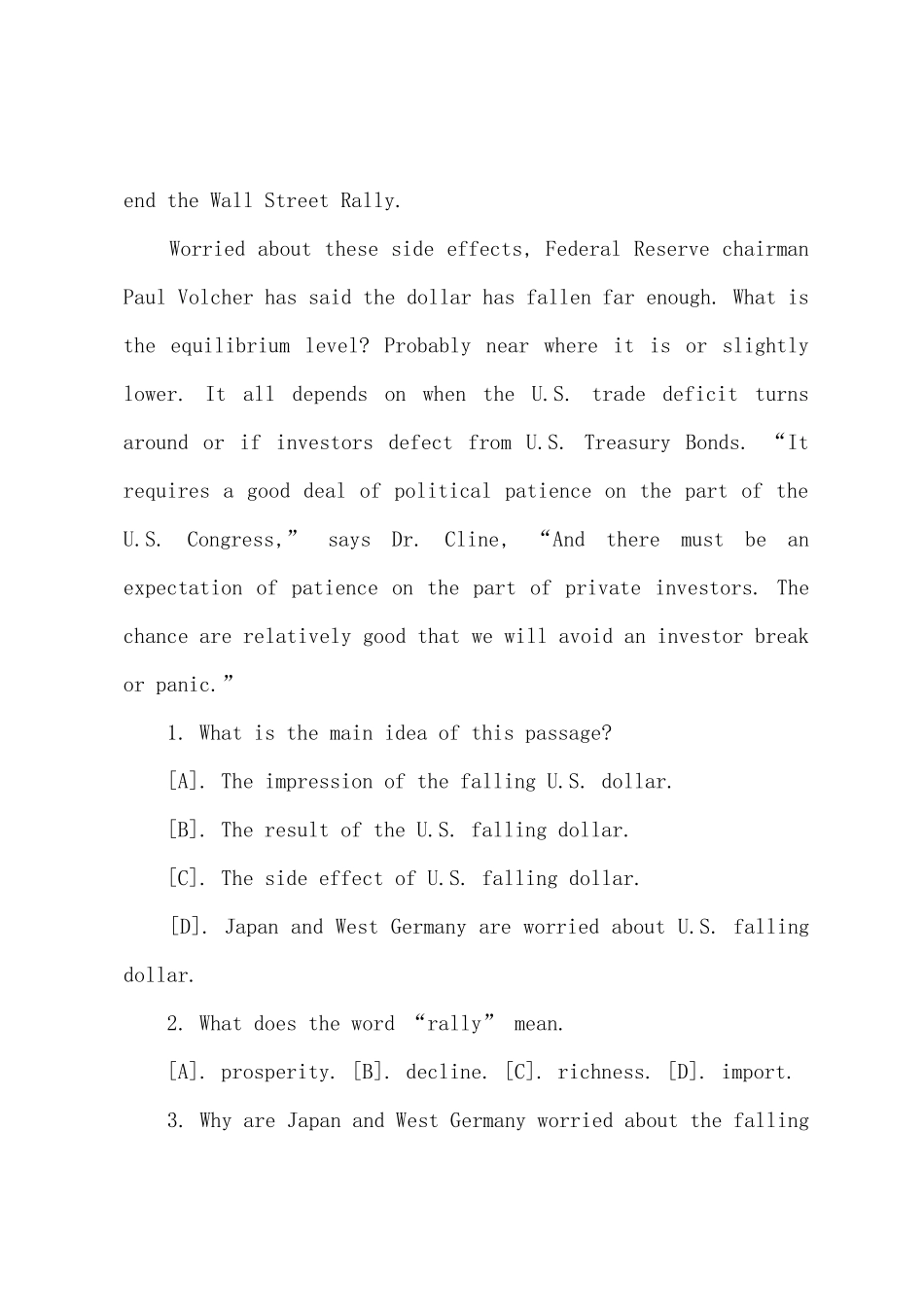六级考试精读荟萃练习题 100 篇(51)Like a ticking time bomb, the falling dollar has grabbed the attention of Japan and West Germany, forcing them to consider adopting economic polices the United States advocates. The U.S. government wants the dollar to fall because as the dollar declines in value against the yen and Deutsche mark, U.S. good becomes cheaper. U.S. companies then sell more at home and abroad, and U.S. trade deficit declines. Cries for trade protection abate, and the global free-trade system is preserved. Then, the cheaper dollar makes it cheaper for many foreign investors to snap up U.S. stocks. That prompts heavy buying from abroad—especially from Japan. Also, if the trade picture is improving, that means U.S. companies eventually will be more competitive. Consequently, many investors are buying shares of export-oriented U.S. companies in anticipation of better profits in the next year or so. But that is a rather faddish notion right now; if corporate earnings are disappointing in interest rates, the stock market rally could stall. Improving U.S. competitiveness means a decline in another’s competitiveness. Japan and West Germany are verging on recession. Their export-oriented economies are facing major problems. Japan is worried about the damage the strong yen will do to Japanese trade. West Germany is also worried. Share prices in Frankfurt plummeted this past week. Bonn is thought to be considering a cut in interest rates to boost its economy. Could the falling dollar get out of hand? If the dollar falls too far, investors might lose confidence in U.S. investments—especially the government bond market. The money to finance the federal budget and trade deficits could migrate elsewhe...


